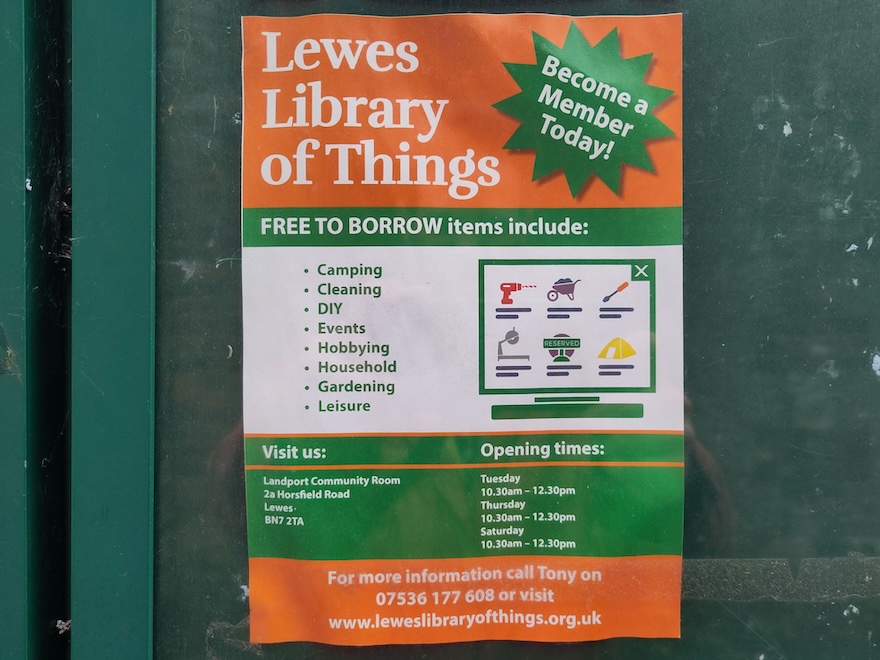Chronologically
Subscribe to my everything RSS feed.
-
Weeknotes 2024 W14 W15 W16 W17
Time keeps on slipping.
-
Children’s day
Happy Children's Day (こどもの日, Kodomo no hi) to all you grown up children. Get those carp windsocks (鯉のぼり, Koinobori) flying and make yourself or children a folded paper samurai helmet (兜, 冑, Kabuto) https://tavinsorigami.com/origami-kabuto/.

-
The first next step
Yesterday I gifted two hours of my time to the Lewes Library of Things (LLOT) https://www.leweslibraryofthings.org.uk/. LLOT is a community project that provides access to equipment on a loan basis free of charge irrespective of their financial circumstances. It also flips the consumer model of many people owning many things, to one thing being used by many people. I’m really excited to be getting involved in the sustainable and regenerative economy space, however small it may be.

-
I voted
I voted. Voting stations are open late this evening. Find your nearest voting station here https://www.electoralcommission.org.uk/i-am-a/voter/your-election-information. You don’t need your polling card but do need photo ID. GO VOTE!

-
Export these settings
You know what I’d really like to see more of with software that have a huge list of settings and customisations? An option to ‘export these settings’ as a json file. Rarely do I make the time to document my setup successes, I’m far more focused on doing the task at hand. The number of times I’ve had to figure things out again from scratch. This would make it much easier.
-
The Fabelmans
🍿🍿🍿🍿📽️ Four bags of popcorn and a film projector to watch all those home movies… just don’t look what’s going on in the background.
-
Shang-Chi and the Legend of the Ten Rings
🍿🍿 Two bags of popcorn.
-
On my way to UX Camp Brighton
Up bright and early and en route to Brighton for this year’s UX Camp Brighton https://www.uxcampbrighton.org. I’m volunteering and on the socials all day. I’m also live-blooping on Mastodon. #UXBC
-
Remote working at Studio 52
Spending a day working remotely at Studio 52 in Southease with the brilliant Helen Davies and the Best Dog™ Audrey.

-
Ghetto POSSE
A few weeks ago @adactio@mastodon.social helped me to change the way I think about #indieweb’s Publish (on your) Own Site, Syndicate Elsewhere (POSSE). I thought there was an official way to POSSE and everything else was a kludge. He reminded me that the means of syndication doesn’t matter at all i.e. it’s a mindset not a tool. So… RSS + IFTTT = syndicated website bloops 🎉